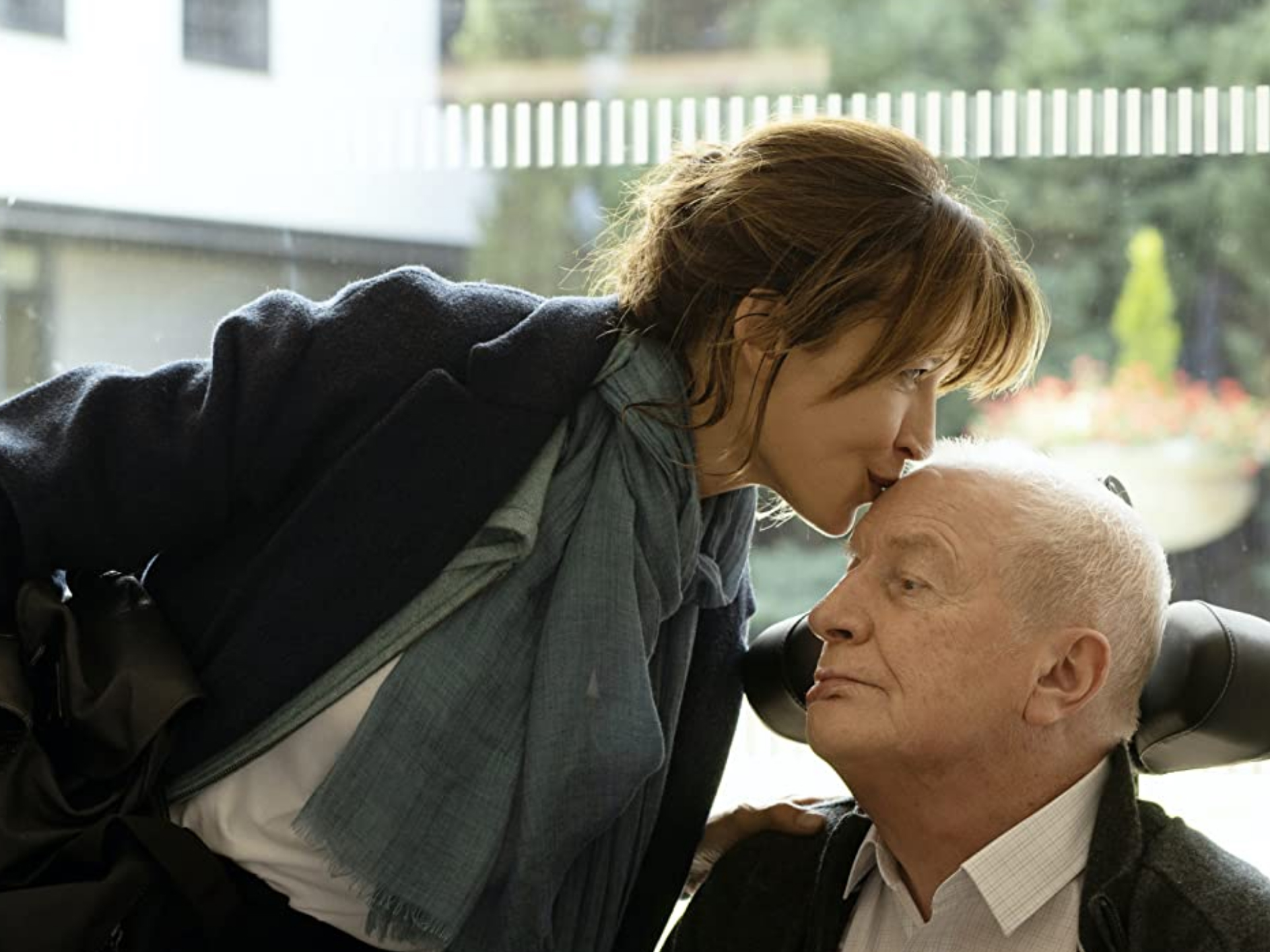
- Golden Globe Awards
Everything Went Fine (France)
“For me, it’s very important to make a film about life,” François Ozon said in a video interview with Les Cinémas Pathé Gaumont. This may seem like an oxymoron, knowing that his latest film, Everything Went Fine, is about euthanasia. The prolific French director has shown time and again that, to him, nothing in life is too precious. Not even life itself. Things come and go naturally and all we can do is flow amidst the river of change. There is nothing fatalistic or morbid about that. On the contrary, Ozon sees his work as a celebration of life. “[André] wants to die precisely because he loves life,” he said of his character of the dying man in his latest movie.
Imminent death in Everything Went Fine acts as a prism through which a whole family’s past is deciphered and processed. The film, which premiered at the Cannes Film Festival in 2021, is based on a memoir by the late Emmanuèle Bernheim, a friend of Ozon. When he first read the book, it was not clear to him how a story about an 85-year-old man who enlists his daughter so that she helps him die, could become material for his abundant creativity. After the unfortunate death of the author, he realized the challenge in front of him: the opportunity to unlock a story of undercurrent familial relationships.
When André (André Dussollier) suffers a stroke, his two daughters – Emmanuèle (Sophie Marceau) and Pascale (Géraldine Pailhas) – responded just like any close relative would. They rush to the hospital hoping for their father’s unlikely recovery. Things take an unexpected turn when, in full awareness of his prognosis, André asks Emmanuèle to help him “end it all.”
The request awakes in her a gust of emotions and brings back memories of the fraught relationship with her domineering father, when, as a little girl, she wished him dead. Years later, under a complete reversal in roles of strength and weakness, Emmanuèle gets to fulfill her wish.
This diabolical occasion doesn’t arrive in the guise of revenge for the cruelty suffered at the hands of her father. It comes as punishment for having ever had the desire to do away with him. It is as if, by becoming an accomplice in his death wish, she can redeem herself of past ill thoughts and intentions no matter how deeply buried they may be. And, so, she accepts.
The journey to a deliberate and controlled termination of life is everything but orderly for the ones who carry it out. For Emmanuèle and André, it provides a timely discovery of each other – and of themselves. As preparations for his final demise are underway, he becomes happier and more comfortable with the prospect of nothingness. He sees death as nothing but a decent end to a full and generally acceptable life.
Nevertheless, the game of life and death can never be understood or captured fully. Likewise, in the context of a declining French bourgeoisie – best represented by André’s indifferent wife (Golden Globe nominee Charlotte Rampling) – the story suggests a deviation from habitual expectations, giving two estranged blood-relatives the chance to act in cahoots against social and psychological requirements while attempting a sense of reconciliation.

